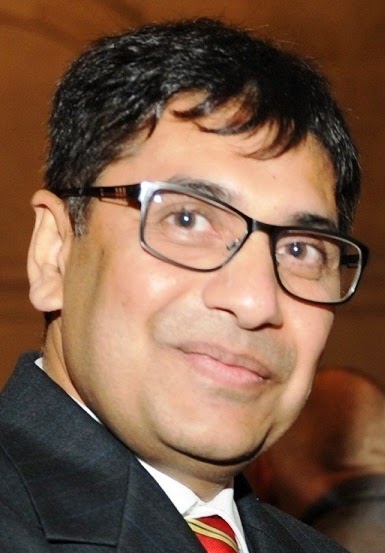Pahalgam Terror Attack: A Turning Point in the Global Fight Against Civilian Targeting
I strongly and unequivocally condemn the barbaric terrorist attack that devastated the peaceful meadows of Pahalgam, Jammu and Kashmir, on 22 April 2025. In an act of unspeakable malice, 26 innocent civilians, including foreign nationals, were brutally gunned down. Dozens more were injured. This atrocity marks a tragic milestone in the global struggle against terrorism that increasingly targets civilians in cold blood.
This was not merely an attack. It was a choreographed slaughter. Armed militants emerged from the forests and fired indiscriminately on unarmed people, families, tourists, and newlyweds gathered in Pahalgam. Among the victims was Lieutenant Vinay Narwal, a young naval officer from Haryana, whose life was extinguished not by the fate of war but by a bullet fueled by hatred.
The group claiming responsibility, The Resistance Front (TRF), a known proxy of the banned Lashkar-e-Taiba, justified the massacre through divisive ideological rhetoric. However, the truth is chillingly clear: this was a premeditated attempt to shatter peace, intimidate civilians, and rekindle chaos in a region yearning for reconciliation.
The Evolution of Terror: From Political Objectives to Civilian
Targeting
This incident signals a disturbing shift in the pattern of violence in the Kashmir Valley. For decades, the conflict bore a political and military complexion. But with the deliberate targeting of civilians based on identity and location, it now mirrors a global trend where terror increasingly aims at the most vulnerable, not for what they have done but for who they are.
According to the Global Terrorism Index, more than 8,000 people lost their lives to terrorism in 2023. India, long a victim of regional instability, has seen over 4,000 of its citizens fall to such acts in the past decade. In Jammu and Kashmir alone, more than 200 civilians have perished in terror-related incidents since 2020. Yet the Pahalgam massacre stands out for its chilling precision and symbolic cruelty.
India's Strategic Response: A New Era of Policy
In the aftermath, the Indian Government launched robust counter-terrorism operations and summoned the Pakistani envoy, citing evidence of foreign-backed orchestration. More significantly, India took the unprecedented step of abrogating the Indus Waters Treaty, a landmark agreement signed in 1960 to share transboundary river waters with Pakistan.
The move represents not just a legal shift but a message: state-sponsored terror will be met with strategic consequences. India has signalled that its diplomatic patience has limits and that it will no longer separate acts of terror from the states that enable them.
This action has global implications. It could mean reduced access to crucial water resources for Pakistan, particularly affecting the agriculture and energy sectors. For the region, it elevates water from a developmental issue to a matter of national security and geopolitical leverage.
Global Condemnation and the Need for Action
In the wake of the attack, leaders and governments worldwide
have voiced their outrage and solidarity. The Taoiseach (Prime Minister) of
Ireland stated:
"Appalled by the loss of innocent lives in the attacks in
Pahalgam, Jammu and Kashmir. My sympathy to the victims, their families and
loved ones. Ireland stands in solidarity with the people of India."
A Blow to Peace and Prosperity
Beyond the immediate loss of life, this attack struck at the heart of Kashmir's economic revival. Once a fragile symbol of peace, tourism had begun to flourish again. In targeting this progress, the assailants sought not just to kill people but to assassinate hope and normalcy. They must not succeed.
The international community must view this event as a clarion call to protect civilians everywhere, not just from bullets but from the ideology that justifies such bloodshed. To do otherwise is to become complicit in the erosion of human dignity.
A Call to Global Resolve
The tragedy at Pahalgam must not be another entry in the annals of outrage followed by inaction. It must have been a turning point when silence gave way to moral clarity, and the world moved from mourning to meaningful resolve.
Let Pahalgam not be remembered solely for its sorrow but as
the catalyst for a renewed global covenant to protect life, liberty, and peace
everywhere.
Prashant Shukla
Author & Public Policy Commentator




Comments